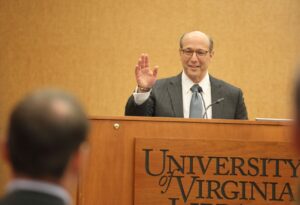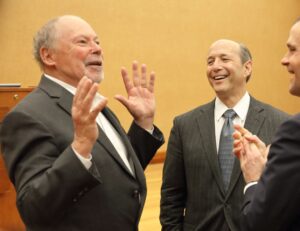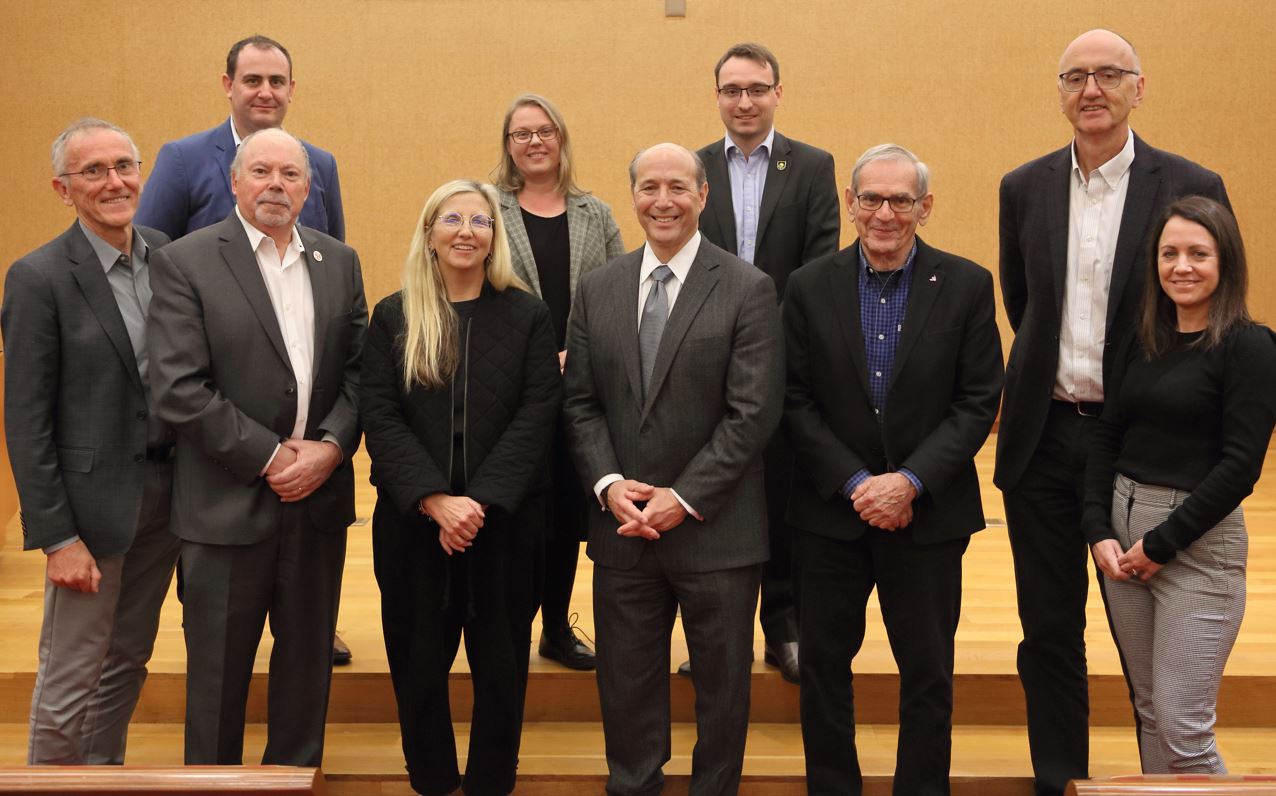
Flinders University has signed a new partnership agreement with a leading US data research centre at the University of Virginia to expand research and knowledge exchange in the areas of artificial intelligence, data security and democracy.
"Technology plays an essential role in the operation of modern society but when misused can present existential threats to the operation of modern democracies across the world," says Professor Melissa de Zwart, Director of the Flinders University Jeff Bleich Centre for the US Alliance in Digital Technology, Security and Governance.
"These risk must also be considered in the broader global security context and rapidly shifting global dynamics."
This new partnership between the Flinders University Jeff Bleich Centre, in the College of Business, Government and Law, and the University of Virginia's School of Data Sciences commences in the wake of the recently announced AUKUS security pact and international technology acquisition program.
"This presents new and unparallel opportunities for Flinders University to continue its thought leadership and research into artificial and augmented intelligence technologies, data collection and impacts, and the role of technology in modern democracies," says Professor de Zwart, who adds the partnership will also activate new international collaboration opportunities in technology, science and engineering and other disciplines.

Mr Jeff Bleich - a former US Ambassador to Australia who actively supports the Jeff Bleich Centre at Flinders University - says technology is now often used to "weaken democratic institutions and norms, and increase scepticism about democracy due in part to abuses of technologies from within and without".
"In the midst of all this turbulence created by misinformation and disinformation, development of new technologies will have potentially powerful effects on democracies depending on how they are deployed," says Mr Bleich.

"Democracy is messy because human beings are messy, and our digital world won't be any different. But free nations need to work quickly to ensure that the digital world is at least as safe, secure and manageable as the physical world that we all share.
"The collaboration between the University of Virginia and Flinders University in Australia – drawing the best minds from like-minded and trusting democratic nations – is an important step towards ensuring we avoid the mistakes of the past and restore and strengthen democracy."
The Dean of the University of Virginia's School of Data Sciences, Professor Philip Bourne, welcomed the new alliance with Flinders University, saying the "partnership will grow".
"The application of data science is a key part of maintaining the security of our nation in the digital era," says Professor Bourne, who completed a PhD at Flinders University in 1980 and later was made a foundation Dean of the School of Data Science at UVA in 2019. He joined the University of Virginia in 2017 after a stint as associate director for data science at the National Institutes of Health.

The amount of data in the world is more than doubling every two years, and data scientists analyse and interpret data to help make informed decisions by using scientific methods, processes, algorithms and systems to extract knowledge and key insights from data.
Data science sits at the intersection of computer science, statistics, mathematics, information science and specialised fields of knowledge or study, such as medicine, the arts or music.
Professor Michael Gilding, Vice President and Executive Dean of the College of Business, Government and Law, says the new partnership strongly aligns with Flinders University goals.
"As part of our mission to embrace innovative knowledge and practice to tackle the challenges of our time, the Data Science expertise in the US will help the Jeff Bleich Centre continue producing research that drives social impact and works to create a better world," says Professor Gilding.
The Jeff Bleich Centre at Flinders University was established in 2019 to be an expert voice on emerging technology for positive social impact - in policy, laws and political behaviours in the domains of national security, governance and democracy. It undertakes activities and research across social cybersecurity, digital technology and extremism and the commercial and defence uses of outer space.
The University of Virginia is a leading American university founded in 1819 by Thomas Jefferson. The School of Data Science is guided by the common goals: to further discovery, share knowledge and make a positive impact on society through collaborative, open and responsible data science research and education. The School of Data Science positions the University of Virginia to play an international role in the global digital future.






